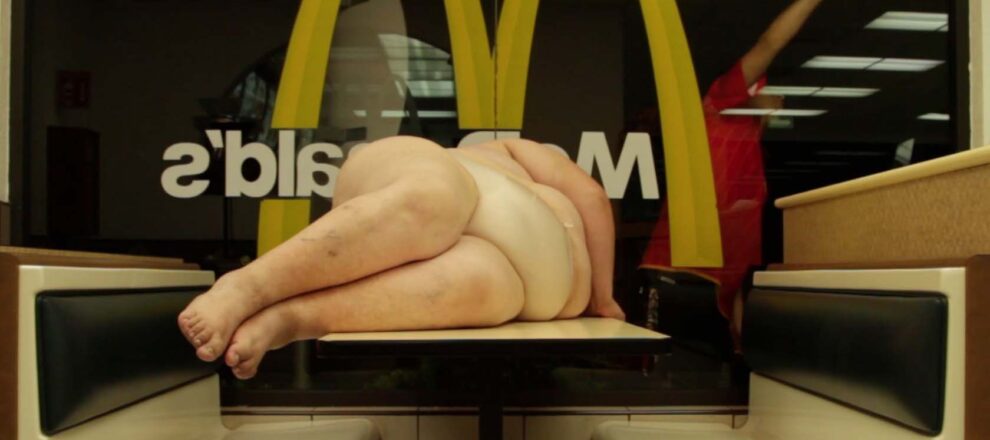The exhibition brings together works that address different forms of confinement and alienation, where the body becomes the focus of an incisive critique of the social, economic, and technological mechanisms that shape, monitor, or consume it. In these pieces, transit does not imply free mobility, but rather forced displacement, oppressive frameworks, and spaces where identity is diluted or exploited.
In Subject, Object, Francisco Pradilla investigates prostitution from a dual perspective: Subject confronts the viewer with a sequence of police records of arrested individuals, images taken from public databases that strip their subjects of individuality. Object uses Google Street View to navigate through places associated with the practice of prostitution. The depersonalized mechanics of the app and the recurring presence of an empty chair reveal a marginalized reality, where the body has been erased but not its trace, and where space is transformed into a testament to abandonment and structural violence.
Paul Destieu, in Fade-out, takes the notion of disappearance to the extreme. A drum kit is slowly buried under gravel while its parts resonate in an increasingly chaotic and fading rhythm. This technical process, recorded as sound and image, is also a metaphor for systemic wear and tear, where physical and sonic impacts function as an echo of a body that resists being silenced, but is inevitably absorbed by the inertia of its surroundings.
Yoshua Okón‘s Freedom Fries, on the other hand, situates the body within the logic of capitalist consumption. In a McDonald’s restaurant converted into a symbolic stage, a customer occupies the space as a figure of embodied alienation. The piece reveals how corporate culture frames and dehumanizes, proposing a critical reading of neoliberal freedom as a fiction that exploits desire and violates individual agency. The body, here, is evidence and consequence of a system that feeds on its own failed promise.
These works open a reflection on the spaces we inhabit—physical and symbolic—and on how systems of representation, surveillance, and consumption shape our perception of the body and the human. These pieces denounce contemporary forms of silencing, erasure, and subjugation.
Text by Rebeca M. Urízar









